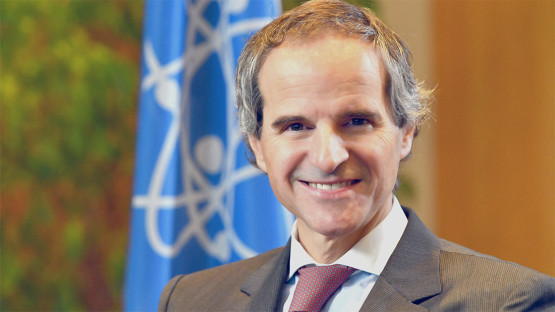IAEA Director General Rafael Mariano Grossi, on his first official trip since taking office, will travel to the United Nations Climate Change Conference (COP25) in Madrid this week to highlight the role that nuclear power can play in the global transition to clean energy.
"Nuclear power provides around one-third of the world's low-carbon electricity and already plays a significant role in mitigating climate change," said Mr Grossi, who assumed office on 3 December. "Many of our 171 Member States believe that it will be very difficult, if not impossible, to achieve sustainable development and meet global climate goals without significant use of nuclear energy."
Mr Grossi will take part on 11 December in a high-level UN side event at COP25 on Sustainable Development Goal 7 (SDG 7) - to ensure access to affordable and reliable energy. The event, entitled "Accelerating the energy transformation in support of sustainable development and the Paris Agreement", will focus on initiatives that could have a significant impact toward achieving SDG 7 goals, help close the energy access gap in a sustainable way and promote climate action by transitioning toward zero-carbon energy solutions.
The IAEA Director General will also hold bilateral meetings with high-level officials, including UN Secretary-General Antonio Guterres, the Executive Secretary of the United Nations Framework Convention on Climate Change (UNFCCC), Patricia Espinosa, as well as the heads of the UN Department of Economic and Social Affairs (UNDESA), the Food and Agriculture Organization (FAO), the International Energy Agency (IEA) and the International Renewable Energy Agency (IRENA). Mr Grossi will also hold bilateral meetings with high-level Spanish Government officials.
With around two-thirds of the world's electricity still generated through burning fossil fuels, and despite growing investment in renewable energy sources, global emissions of greenhouse gases reached a record high last year.
"Variable renewables, such as solar and wind, are vital to the clean energy transition, but they alone cannot meet countries' growing energy needs," Mr Grossi said. "Nuclear power can provide the continuous, low-carbon power to back up increasing use of renewables. It can be the key that unlocks their full potential by providing flexible support - day or night, rain or shine."
COP25 will lay the groundwork for next year's defining climate change conference, when countries must submit new climate action plans under the Paris Agreement. A key issue for COP25 is to address the financing of global climate action. For many financial institutions today, nuclear power does not qualify for financing under green or sustainable financing mechanisms, making construction of new nuclear power reactors challenging. "To achieve climate goals, all low-carbon energy sources need a level financial playing field," Mr Grossi said.
The side event will take place from 13:15 to 14:45 local time in Room 5 in Hall 4 at the COP25 venue. Live web stream will be available here.







